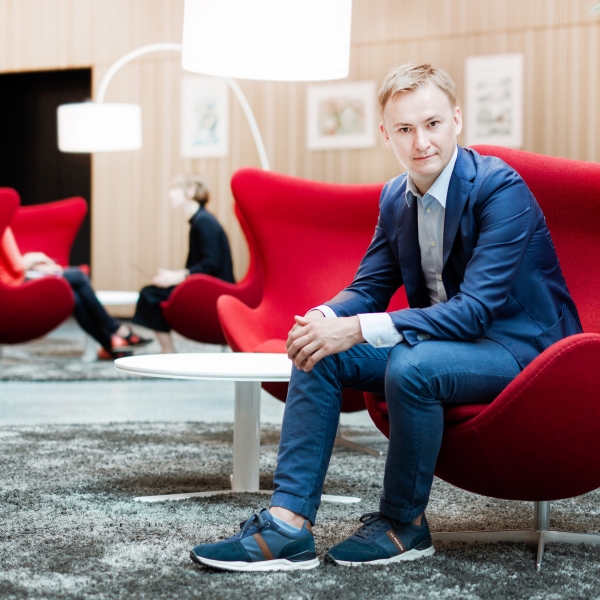Director of marketing and communication agency "Virtuozai" / Journalism
Why did you decide to study at the Faculty of Communication?
From 2002 to 2005, the Faculty of Communication was the strongest communication and journalism school in the country. For me, a young journalist from Kaunas, seeking knowledge and a career, there were not many questions about where to study. The choice was a good one - after six months of studying, commuting from Kaunas to lectures in Vilnius, I received an invitation to move from the Kaunas branch of "Lietuvos rytas" (eng. Lithuania's morning), a very strong and authoritative publication at the time, to Vilnius.
Do you have any memories from your university days that stick in your mind?
What I remember most is the spirit of community - my fellow students had very strong bonds, and there was also close communication and support from the lecturers. Having a circle of people you can consult and trust is very important, both in your personal and professional life. There is a reason why journalists are seen as a strong professional community - the foundations for this are laid at the Faculty of Communication.
What was your first job in general and what was your first job after graduation?
I started working as a journalist even before I started studying journalism - I wrote an article in the student newspaper "SAVAS" (eng. Your own) about how books were being stolen from the VMU library, thereby alerting the university. After that, I was quickly noticed by newspaper and TV editorial offices, I started reporting as a freelance journalist and before I finished my studies I was invited to work full-time in Kaunas, in the supplement of "Lietuvos rytas" for Kaunas residents.
Did the Faculty of Communication influence your personality?
I studied at the Faculty of Communication for my master's degree, so the subject of my studies was more about contextual subjects and developing analytical thinking. Working as a reporter, you don't really apply that kind of knowledge. But later, when I changed jobs, when I was exposed to communication more broadly, and later also to marketing and management, analytical knowledge, the ability to look deeper and wider became a daily practice.
What does your working day look like? Can you name the challenges you face most often at work these days?
I am currently the head of my own agency, but my working day starts as it did 20 years ago when I was a crime reporter, with a review of what is new and relevant. However, now I'm not looking at police reports, but at the media - looking for what has happened that might be of interest to clients. Then my colleagues and I discuss what we have done according to plan, what we are planning for the future, and then we coordinate our actions and plans with our clients. Then we get into a routine - reviewing and improving existing projects, coordinating with the media, monitoring and analysing results. And then there's the constant management of financial flows, but that's the boring part for communicators.
What is most important to you in your work?
The most important thing at work is enjoyment. If it's not enjoyable, not interesting, the result will be null and void. Whether you are a journalist or a director, you have to want to go to work. Personally, I find pleasure in the constant search for a solution to a client's need, in the search for and implementation of opportunities. That is, a constant dynamic. It is never boring. Most of the time very difficult. And it is all very inspiring.
Do you have specific goals in your work?
In my chosen job - a communications and marketing agency - I aim to help clients achieve their goals and grow their organisations and businesses. It's a more down-to-earth goal and perhaps some might find it uninspiring, not reaching beyond the horizon. But remember, to reach the horizon, we need to take many small steps. It is those steps that often become the big challenges, maintaining daily perseverance, daily motivation.
Based on your study experience, what advice would you give to current students of the Journalism degree programme or to all students in general?
Never be afraid, dive into experiments, try new things, be adventurous. It will be the best and most valuable thing you will experience in your life and it will bring you the most knowledge and experience.

